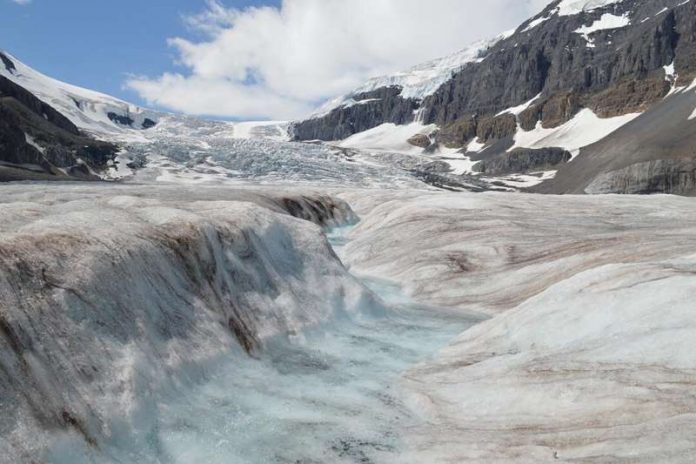Wildfires are becoming more common, as global temperatures rise. University of Saskatchewan (USask) hydrology researchers found that exposure to wildfire smoke can cause glaciers to melt faster. It is affecting mountain runoff that provides major freshwater resources for life downstream.
A team USask hydrology researchers observed each melting season at the Athabasca Glacier, from 2015–2020. This is a part of the Columbia Icefield in Jasper National Park, Alberta. They analyzed the accumulation of soot and ash on the glacier and the effects of solar activity that causes glaciers to melt. The study was published in the American Geophysical Union’s journal Earth’s Future.
In years with increased fire activity causing, it to darken and to melt much faster. The surface of the glacier stayed dark even once the fire season had passed. As microbial life likely used the soot as a source of food and reproduced at a faster rate during this time.
The weather also played a part in the effects on glacier melt. Smoky days are warmer and drier than sunny days and contain less solar energy. The darker ice had a 10 percent increase in its melting rate. The ice was preserved due to the decreased amount of sun reaching the glacier surface if smoke was present in the air.

